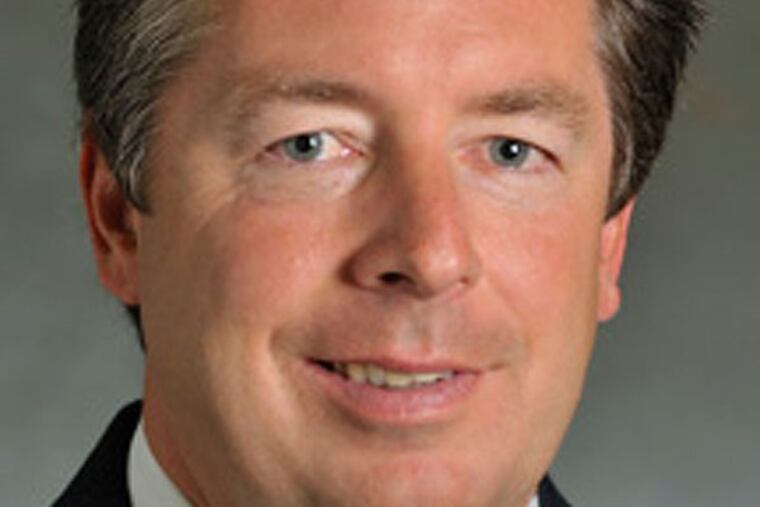Archdiocese to freeze pensions for 8,500
The Archdiocese of Philadelphia plans to freeze the traditional pension for about 8,500 parochial school teachers, church office workers, and other lay employees, church officials said Tuesday.

The Archdiocese of Philadelphia plans to freeze the traditional pension for about 8,500 parochial school teachers, church office workers, and other lay employees, church officials said Tuesday.
The change, designed to keep the plan's estimated $150 million deficit from increasing and whittling it down over time, will take effect June 30, after which current employees will no longer accrue benefits under the plan.
The pension plan, known as a defined benefit plan because it guarantees a certain benefit to participants, had $478 million in assets June 30, 2012, about 76 percent of what it needed to meet its projected long-term obligations of $630 million.
"This action isn't being taken to resolve a short-term concern," Timothy O'Shaughnessy, chief financial officer for the archdiocese, said in an interview. The plan has enough money to continue paying retiree benefits for years.
"The shortfall of $150 million is an issue that needs to be dealt with for the long term, both for the plan and for the archdiocese," O'Shaughnessy said.
Rita C. Schwartz, president of the labor union that represents 650 teachers in archdiocesan high schools, said the move was not surprising, given the financial restructuring underway at the archdiocese in the last year.
"My concern is that our teachers don't panic," Schwartz said. "The pension's not gone. It's there."
Freezing traditional pension plans has been a popular strategy in industry for many years and has made steady inroads into the nonprofit and religious sectors. Dioceses across the country, including Boston, Chicago, and Minneapolis-St. Paul, have frozen their traditional pension plans for lay employees in recent years.
Like many organizations, the Archdiocese of Philadelphia is replacing its traditional pension plan with a 401(k)-style plan.
Though the archdiocese will contribute to the plan - an estimated 4.5 percent of each participating employee's annual pay in the first year - such plans put the onus on workers to make sure they have enough savings to retire.
The current contribution to the defined benefit plan for lay employees in the archdiocese is 7.5 percent of each employee's pay. The archdiocese's financial office collects that amount from all archdiocesan entities that have employees in the plan.
Officials were convinced the plan was unsustainable over the long term.
If the archdiocese maintained the plan and increased the 7.5 percent employer contribution to 10 percent, "the plan would still be underfunded in the range of $100 million 30 years from now. That just doesn't work," O'Shaughnessy said.
By freezing the plan and continuing to make annual contributions in the range of $11.5 million to $13.7 million, based on the archdiocese's payroll on June 30, 2012, the archdiocese expects to have the plan fully funded in 20 to 30 years, he said.
About 4,700 retirees are receiving benefits under the plan, and 4,350 former employees are vested in the plan, but not yet receiving benefits.
The pension change is the latest move under Archbishop Charles J. Chaput to get the archdiocese, which covers five Southeastern Pennsylvania counties, where 1.46 million Catholics live, onto firmer financial footing.
Besides selling certain real estate, such as the cardinal's residence for $10 million, to help fill gaps in its operating budget, the archdiocese has announced a major deal to lease its 13 cemeteries for a total payment of $89 million over 35 years.
That deal is expected to close in the first quarter of next year and will help fill long-term holes in the church's balance sheet.
In another significant move, the archdiocese is exploring the sale of its nursing homes and other senior-living facilities.
KEY STEPS
June 2012:
25 percent of headquarters jobs eliminated.
Nov.: Villa
St. Joseph by the Sea in Ventnor sold
for $4 million.
Dec.: Cardinal's mansion sold for $10 million.
March 2013: Plans announced to sell or lease some seminary land in Lower Merion.
Sept.: Deal reached to lease 13 cemeteries
for $89 million over 35 years.
Nov.: Decision made to freeze traditional pension plan for lay employees.EndText
215-854-4651
@InqBrubaker